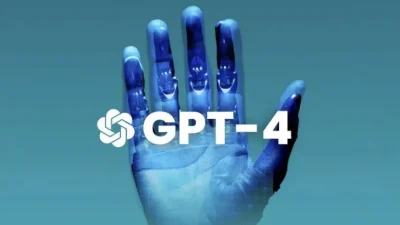In today’s era of AI-driven solutions, tools like GPT-4 are revolutionizing the way we access information, solve problems, and create content. However, the accuracy and relevance of responses from GPT-4 largely depend on how questions or prompts are structured. Crafting effective queries not only saves time but also ensures you get the most out of this powerful tool.
This article delves into how to formulate precise queries for GPT-4, offering practical tips, examples of successful and flawed prompts, and advice on avoiding common pitfalls.

Why Query Formulation Matters
Understanding the importance of query formulation is the first step toward optimizing your interaction with GPT-4. Here’s why it matters:
- Relevance: Well-structured prompts help GPT-4 focus on the specific information you need.
- Clarity: Clear queries minimize misunderstandings and ambiguous responses.
- Efficiency: Time is saved when queries lead to accurate and actionable answers on the first attempt.
By focusing on these aspects, users can transform their interactions with GPT-4 into seamless and productive exchanges.
Key Principles for Effective Query Writing
Be Specific
Specificity is crucial when interacting with GPT-4. General or vague prompts often result in generic responses that may not address your actual need. For example:
Example of a vague prompt: “Tell me about technology.”
Improved prompt: “What are the latest advancements in renewable energy technology?”
The second prompt narrows the scope, guiding GPT-4 to focus on a particular area.
Include Context
Providing context helps GPT-4 understand the background and intent of your query. If your question lacks context, you may receive an answer that doesn’t align with your expectations.
Example without context: “Explain the benefits.”
Improved prompt: “Explain the benefits of implementing cloud computing in small businesses.”
The additional context in the second example ensures that the response is tailored to the specific topic.
Use Clear Language
Avoid using overly complex or ambiguous language. Instead, frame your queries in simple, direct sentences. For instance:
Example of unclear language: “Describe the components related to progressive paradigms.”
Improved prompt: “What are the main features of progressive web apps?”
Clear language reduces the risk of misinterpretation and enhances the quality of the response.
Specify the Output Format
If you need the response in a particular format, such as a list, table, or essay, include this in your prompt. This ensures that GPT-4 delivers the output in the desired structure.
Example: “List the top five benefits of renewable energy.”
This prompt informs GPT-4 to provide a concise list rather than an extended explanation.
Common Mistakes to Avoid
Being Too Broad
Overly broad queries can lead to answers that are either too generic or irrelevant. Consider this:
Ineffective prompt: “Tell me about history.”
Effective prompt: “What were the key causes of World War II?”
By narrowing the focus, the second query yields a more targeted and useful response.
Overloading the Query
Asking too many questions in a single prompt can confuse GPT-4, resulting in incomplete or scattered answers.
Ineffective prompt: “Tell me about renewable energy, its types, its benefits, and its history.”
Effective prompt: “What are the main types of renewable energy?” (Separate this into multiple queries if needed.)
Breaking down a complex query into simpler parts allows for more thorough and precise responses.
Ignoring Relevance
Irrelevant details in a query can detract from the core focus. Stay concise and to the point, avoiding unnecessary background information unless it’s critical.
Example: Instead of saying, “I’ve been wondering about the history of technology because I’m writing a book about ancient innovations,” simply ask, “What were some significant technological advancements in ancient history?”
Examples of Effective Prompts
For Research:
“What are the economic impacts of climate change on developing nations?”
For Summaries:
“Summarize the main themes of ‘Pride and Prejudice’ by Jane Austen.”
For Instructions:
“How do I set up a basic WordPress website?”
For Creative Writing:
“Write a 300-word short story about a futuristic city where AI governs daily life.”
Enhancing Interactions Through Iteration
It’s rare to get a perfect answer on the first try, especially for complex topics. Use iterative queries to refine responses:
- Start with a broad question: “Explain the effects of climate change.”
- Refine for specifics: “How does climate change affect Arctic wildlife?”
- Focus further: “What are the primary threats to polar bears due to climate change?”
This step-by-step approach allows you to extract increasingly detailed and relevant information.
Leveraging GPT-4’s Features
GPT-4 can handle various tasks, from summarization to creative writing. Utilize these capabilities by tailoring your prompts to match the task:
- Creative Writing: “Compose a poem about the ocean in the style of Walt Whitman.”
- Problem Solving: “What are the best practices for improving team productivity in remote work?”
- Learning Aid: “Explain Newton’s laws of motion in simple terms for a 10-year-old.”
Common Use Cases and Their Queries
Academic Assistance
- “Provide an analysis of the themes in ‘To Kill a Mockingbird.'”
- “What were the causes and consequences of the Great Depression?”
Professional Development
- “How do I write an effective project proposal?”
- “What are the latest trends in digital marketing for 2024?”
Personal Interests
- “What are some beginner-friendly plants for indoor gardening?”
- “How do I start learning Python for data analysis?”
Testing and Refining Prompts
Before finalizing a query, ask yourself:
- Does this question include enough detail?
- Am I clear about what I want in the response?
- Could this query be misinterpreted?
If the answer to any of these questions is “yes,” adjust your prompt accordingly.
Conclusion
Crafting precise, context-rich queries is the key to unlocking GPT-4’s full potential. By being specific, providing context, and iterating on responses, users can achieve highly relevant and accurate answers. Avoid common pitfalls like vague prompts or overloaded queries, and take advantage of GPT-4’s flexibility to handle various tasks.
By mastering the art of query formulation, you can significantly enhance your interaction with GPT-4, making it a more efficient and powerful tool for both personal and professional use.





